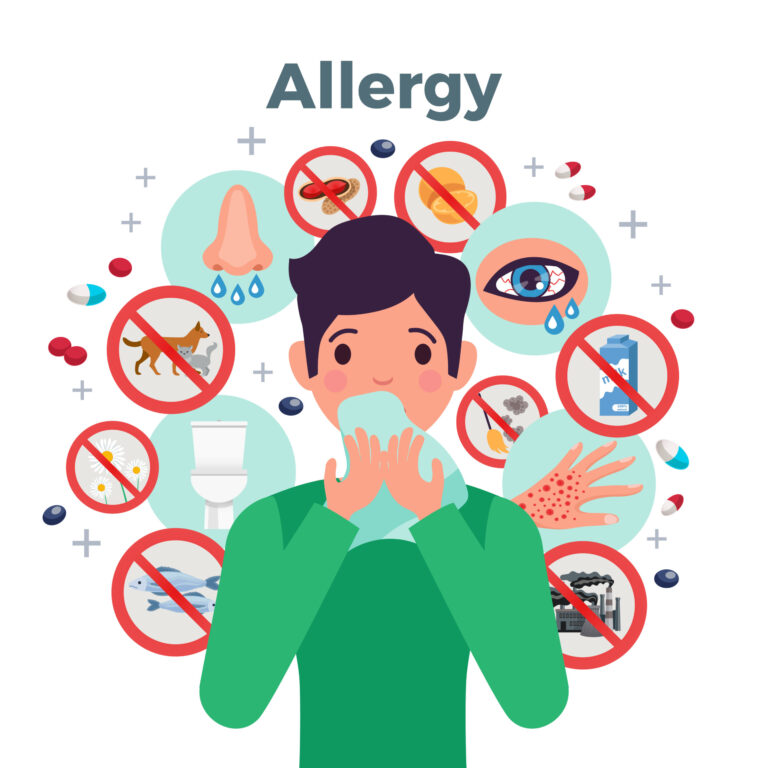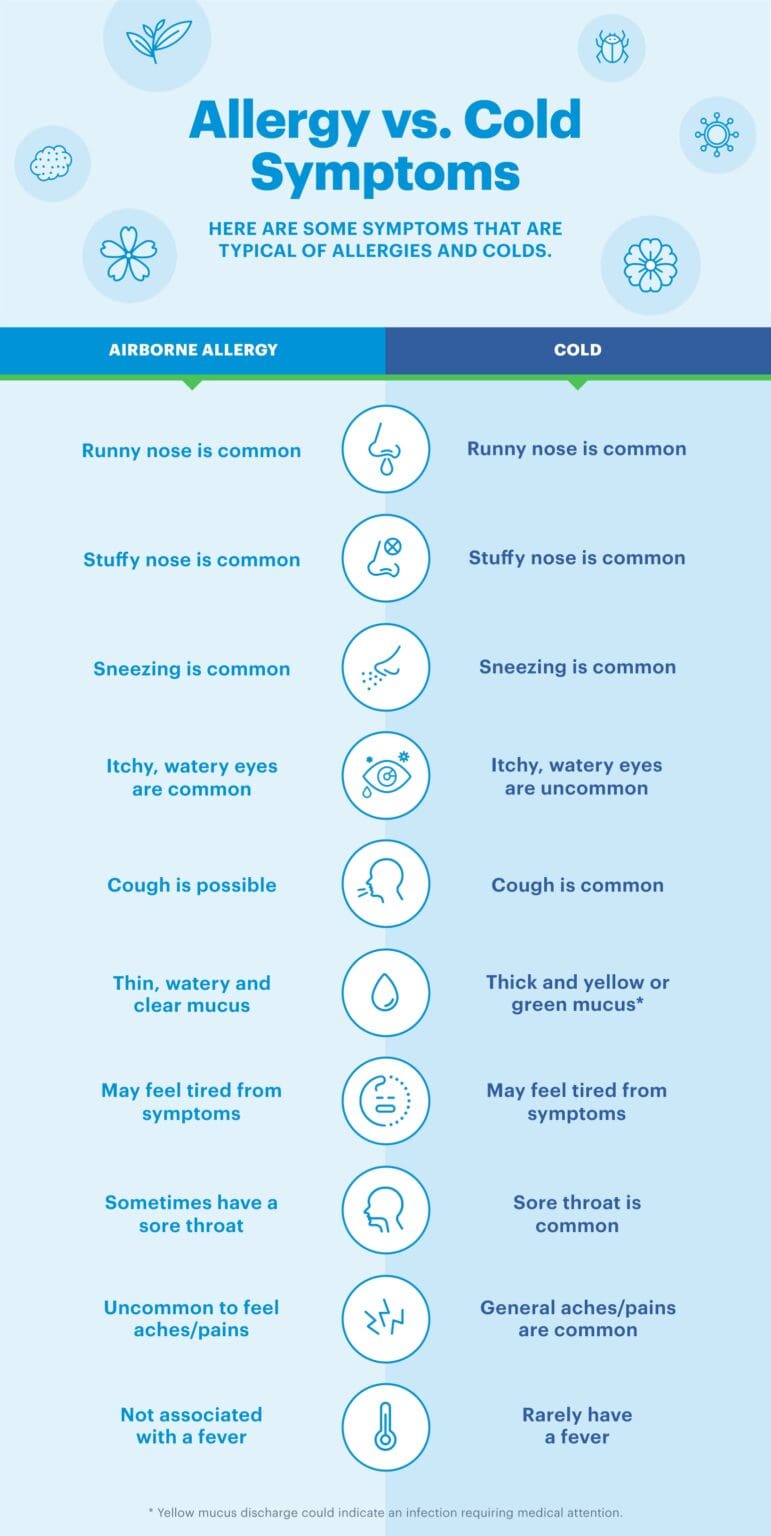An allergy is a reaction of the immune system to a foreign substance that is usually harmless to the body. These foreign substances are called allergens. They may contain certain foods, pollen, or animal dander.
The job of the immune system is to fight harmful pathogens and keep you healthy. This is done by attacking anything it deems possible to endanger your body. Depending on the allergen, this reaction can be accompanied by inflammation, sneezing, or other symptoms.
The immune system normally adapts to the environment. For example, if the body encounters something like pet hair, it should be considered harmless. In people with dander allergies, the immune system recognizes them as foreign invaders that threaten the body and attack them.
TYPES OF ALLERGIES:
- Drug Allergy
- Food Allergy
- Insect Allergy
- Pollen Allergy
- Pet Allergy
- Mold Allergy
- Latex Allergy
SYMPTOMS OF ALLERGIES:
Allergens can be inhaled into the nose and lungs. Many are small enough to float in the air. Examples include pollen, house dust, mold spores, cat and dog dander, and latex dust. Allergens can be taken orally. This includes food and medicines you eat. Allergens can be injected into the body. These include drugs administered through needles and venom from insect bites and bites. Your skin can absorb allergens. Plants such as poison ivy, sumac, and oak can react to touch. Examples also include latex, metals, and raw materials for cosmetics and household products.
A few Symptoms of Allergies are:
- Itchy, watery eyes
- Swelling
- Itchy nose
- Cough
- Bloating
- Vomiting
- Rashes
- Pain
- Sneezing
- Wheezing
DIAGNOSIS:
Allergies are diagnosed as follows:
- Medical History: Doctors ask questions to fully understand symptoms and possible causes. Bring your notes to refresh your memory. Be prepared to answer questions about your family history, medications you take, and your lifestyle at home, school, and work.
- Physical Examination: If your doctor determines that you have allergies, carefully monitor your ears, eyes, nose, throat, chest, and skin during the test. This test may include pulmonary function tests to see how much air you are exhaling from your lungs. X-rays of the lungs and sinuses may also be required.
- Tests to determine Allergens: Your doctor may do skin tests, patch tests, or blood tests. Allergies cannot be diagnosed by testing alone. Lab results are just one of many tools a doctor can use to make a diagnosis.
TREATMENT FOR ALLERGIES:
The best way to avoid allergies is to stay away from what is causing the reaction. If this isn’t always possible, treatment alternatives are available. Proper allergy treatment is based on medical history, allergy test results, and severity of symptoms. It includes three types of treatment: allergen avoidance, medical options, or immunotherapy (allergens injected or placed under the tongue). Treatment of allergies often includes medications such as antihistamines to control symptoms. Medicines may be over-the-counter or prescription only. What your doctor prescribes depends on the severity of your allergy.
Allergy medications are available as:
- Pills
- Liquids
- Inhalers
- Nasal sprays
- Eye drops
- Skin creams
- Injections
Different types of medications are used to treat allergy symptoms are:
- Cetirizine (Zyrtec, Zyrtec Allergy)
- Chlorpheniramine
- Olopatadine (Patanase) nasal spray
- Olopatadine (Pataday, Patanol, Pazeo) eye drop
- Desloratadine and pseudoephedrine (Clarinex-D)
- Loratadine and pseudoephedrine (Claritin-D)
- Beclomethasone (Qvar Redihaler)
PREVENTION FROM ALLERGIES:
An allergy control plan is a key to preventing allergies. Allergies should also be controlled. Work with your doctor to develop an allergy management plan. How you control allergies and prevent allergic reactions depends on the type of allergy. Here are some ways to manage allergies:
- Stay away from people who already have allergies so the allergens don’t intrude in your body.
- When you experience symptoms visit a doctor and take recommended medicines on time.
- In case of anaphylaxis keep epinephrine auto-injectors with you at all times.
- Wear a medical alert bracelet, so other people can recognize you have severe allergies.
Allergies damage your immune system so it needs to be treated as symptoms show up. For expert advice, contact Specialty Care Clinics.
Dial 469-545-9983 to book a telehealth appointment for an at-home check-up.



